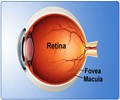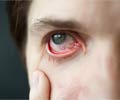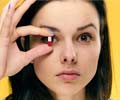A new eye drop called Sylentis SYL136001v10 that may replace injections for retinal diseases like macular degeneration, diabetic retinopathy, has been developed
- A new eye drop that may replace injections for retinal diseases has been developed.
- This novel drug is called Sylentis SYL136001v10.
- It can enter the cells of the retina and blocks the formation of new blood vessels by intravitreal drops.
Objective - to control the formation of new blood vessels in the retina
Pañeda goes on to explain that this compound "is a small interfering RNA (siRNA) designed to silence the expression of NRARP, a protein that controls the formation of new blood vessels in the retina".
In this way, she says, "the drug exerts its action by entering the cells of the retina, where it prevents the synthesis of this protein and blocks the formation of new vessels, which is one of the fundamental characteristics of degenerative diseases of the retina".
The compounds currently used to treat these diseases are based on large antibodies that cannot penetrate from the ocular surface to the retina, so they must be administered by intravitreal injections.
Therefore, "patients suffering from age-related macular degeneration or diabetic retinopathy have to go to the hospital where the treatments are performed with ocular injections, which is annoying and painful, and also involves a significant financial investment for the health system", says Covadonga Pañeda.
However, she notes, "siRNA, like SYL136001v10, are up to 10 times smaller than these treatments. Their size allows them to penetrate the retina and inhibit the formation of new blood vessels after their application in ophthalmic drops, as we have shown in animal models".
In particular, "efficacy studies have shown that the reduction of NRARP in the retina by means of siRNA leads to the regression of angiogenic retinal lesions and that the observed reductions are equivalent to those of anti-VEGF, which is the current treatment standard for these diseases with ocular injections", stresses the R&D manager.
Reference:
-
A Drug to Treat Retinal Diseases with Drops Instead of Injections - (http://www.agenciasinc.es/en/News/A-drug-to-treat-retinal-diseases-with-drops-instead-of-injections)
Source-Eurekalert
















